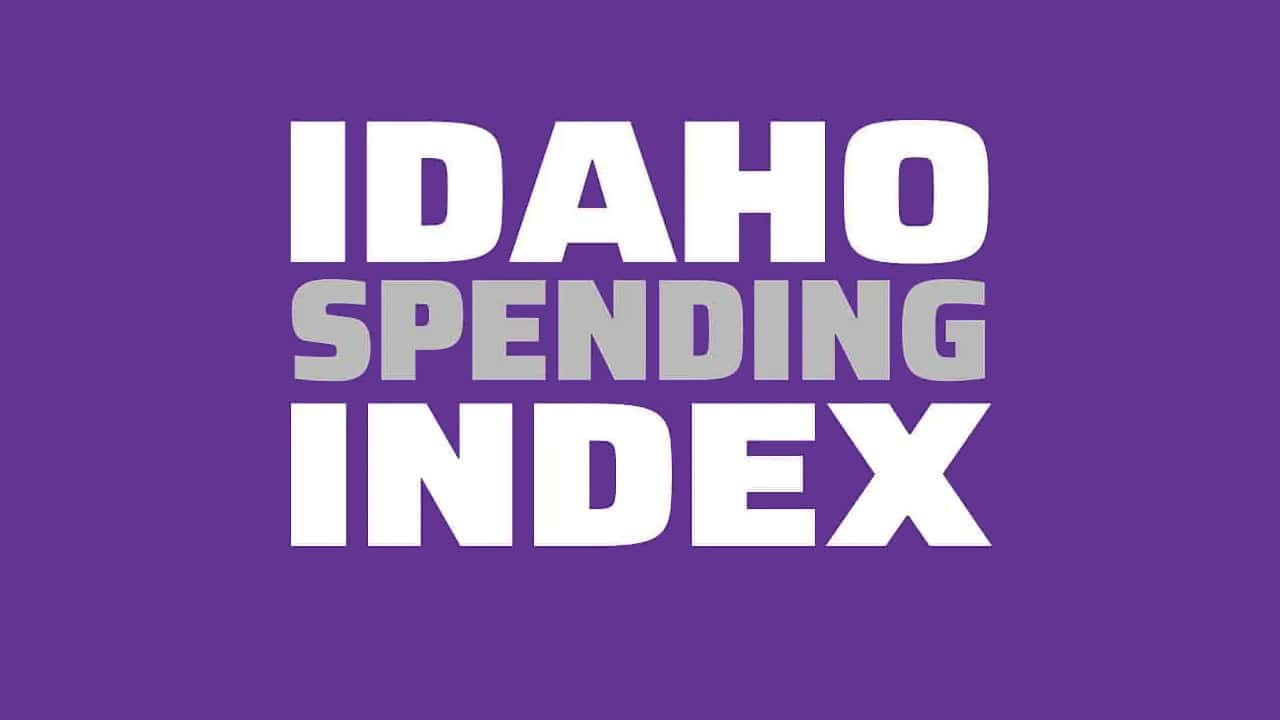


The Idaho Spending Index serves to provide a fiscally conservative perspective on state budgeting while providing an unbiased measurement of how Idaho lawmakers apply these values to their voting behavior on appropriations bills. Each bill is analyzed within the context of the metrics below. They receive one (+1) point for each metric that is satisfied by freedom-focused policymaking and lose one (-1) point for each instance in which the inverse is true. The sum of these points composes the score for the bill.
Analyst: Niklas Kleinworth
Rating: -5
Bill Description: Senate Bill 1412 appropriates $169,007,600 and 385.02 full-time positions to the Department of Environmental Quality for fiscal year 2025.
Does this budget incur any wasteful spending among discretionary funds, including new line items? Conversely, does this budget contain any provisions that serve to reduce spending where possible (i.e. base reductions, debt reconciliation, etc.)?
This budget request includes an appropriation of $1.1 million in additional funding for the Bunker Hill project in North Idaho. The DEQ is requesting this funding, citing the need to cover inflationary increases. However, the agency is requesting a blanket inflationary increase of 40%. In the 2023 fiscal year, the agency received an appropriation of $1.5 million for this project and another $13.7 million in funding from the American Rescue Plan Act that could also be used for this purpose.
Though inflation has reached historic highs in recent years, an increase of 40% is excessive.
(-1)
Is the maintenance budget inappropriate for the needs of the state, the size of the agency, or the inflationary environment of the economy? Conversely, is the maintenance budget appropriate given the needs of the state and economic pressures?
This legislation confirms the program maintenance budget for the Department of Environmental Quality at $166,123,500. It is estimated that about $76 million of this funding is continuously appropriated funding from the American Rescue Plan Act. These funds will no longer be available after the 2026 fiscal year. Even after excluding these funds from our analysis, the agency is growing from the FY 2022 base by more than double what would be prescribed by inflationary pressures and growth.
(-1)
Does this budget perpetuate or expand state dependence on federal dollars, thereby violating principles of federalism? Conversely, does this budget actively reduce the amount of federal dollars used to balance this budget?
This legislation appropriates more than $121.6 million in federal funding to the DEQ. This constitutes more than 72% of the agency’s total budget. These funds also support the costs for nearly one-quarter of the staff. Additionally, this legislation adds to this dependency by appropriating an additional $526,100 in funding from Washington, D.C. This demonstrates both continued and expanding dependence on the federal government.
(-1)
Does the budget grow government through the addition of new permanent FTPs or through funding unlegislated efforts to create new or expanded entitlement programs? Conversely, does this budget reduce the size of government staff and programs except where compelled by new legislation?
Senate Bill 1412 adds six new full-time equivalent positions to the Department of Environmental Quality. Two of these positions will be to expand the Air Quality initiative. The other four made for a new solid waste engineer, a rules planning analyst, a grant officer position, and a data system analyst.
These new positions directly increase the agency’s staff. Several of them also support the expansion of a program. The Air Quality initiative is one example. Other positions offer the opportunity for future growth. One such example is the addition of the new grants officer position, to manage the application, receipt, and reporting of an ever-expanding pool of federal funding.
(-1)
Does this budget contain hidden fund transfers or supplemental expenditures that work to enact new policy or are not valid emergency expenditures? Conversely, are fund transfers only made to stabilization funds or are supplemental requests only made in the interest of resolving valid fiscal emergencies?
This legislation provides for a fund transfer of $2 million from the General Fund for the Confined Animal Feeding Operations Improvement Fund. Once in the fund, these monies are continuously appropriated to the agency. Funds are paid as grants to the Idaho agricultural industry to subsidize improvements to confined animal feeding operations and how they impact water quality.
The agency did not request additional funding for this project. Additionally, this transfer from the General Fund is not officially counted as spending. This accounting gimmick artificially reduces the amount of funding the state encumbered in Idaho-sourced revenue.
(-1)


